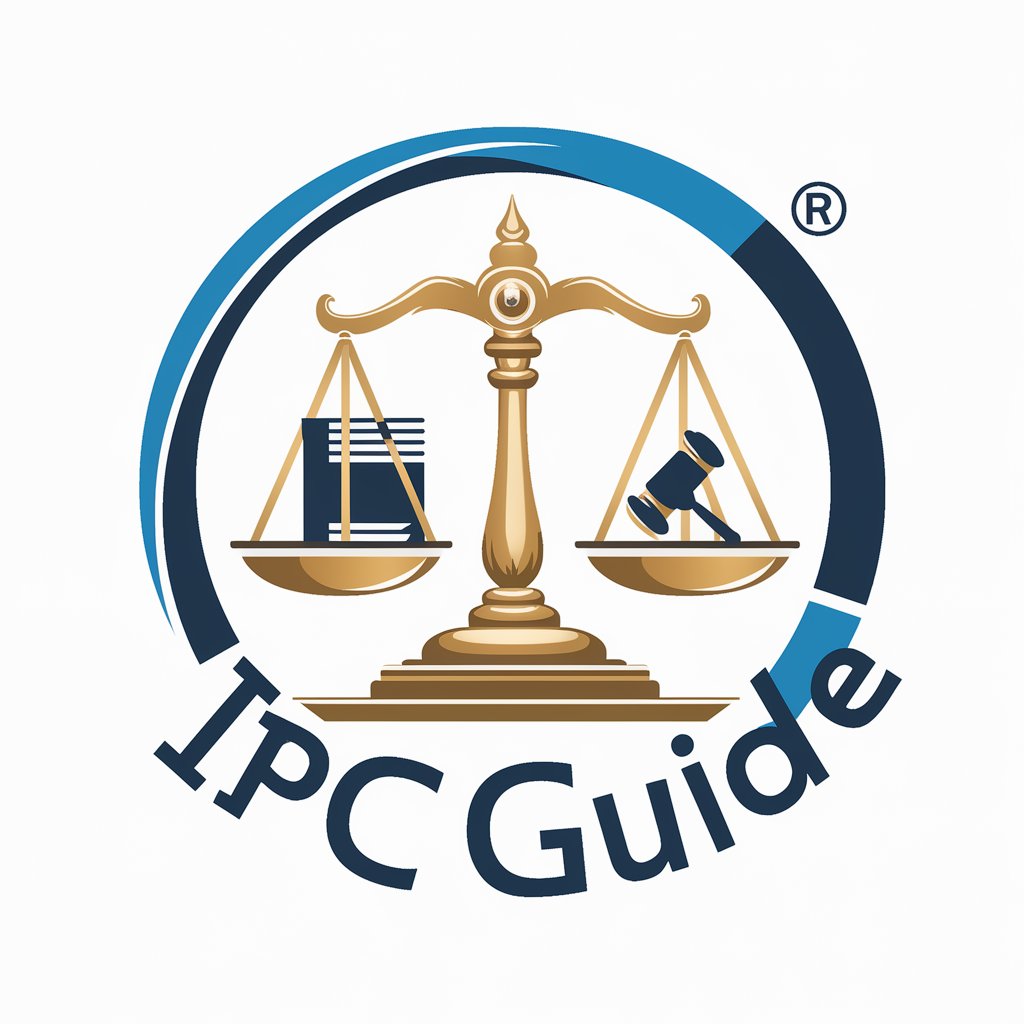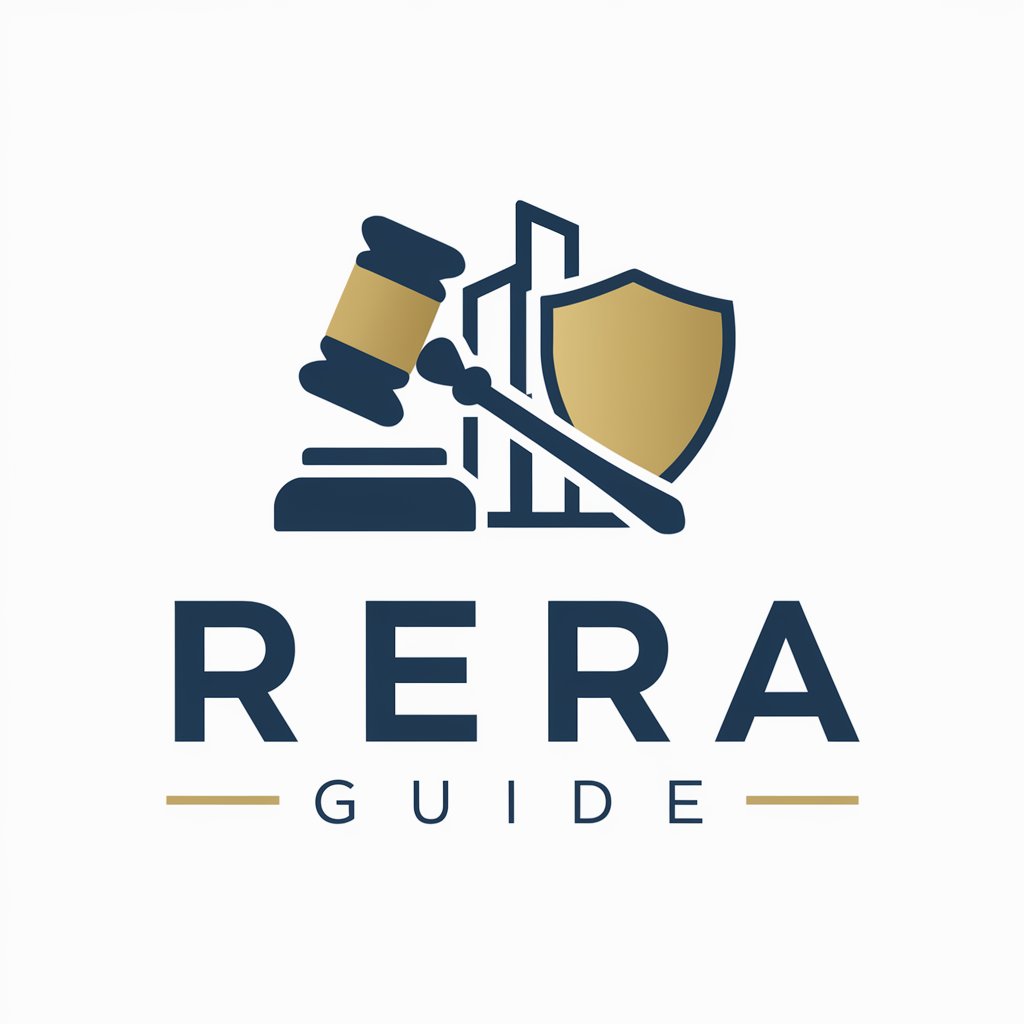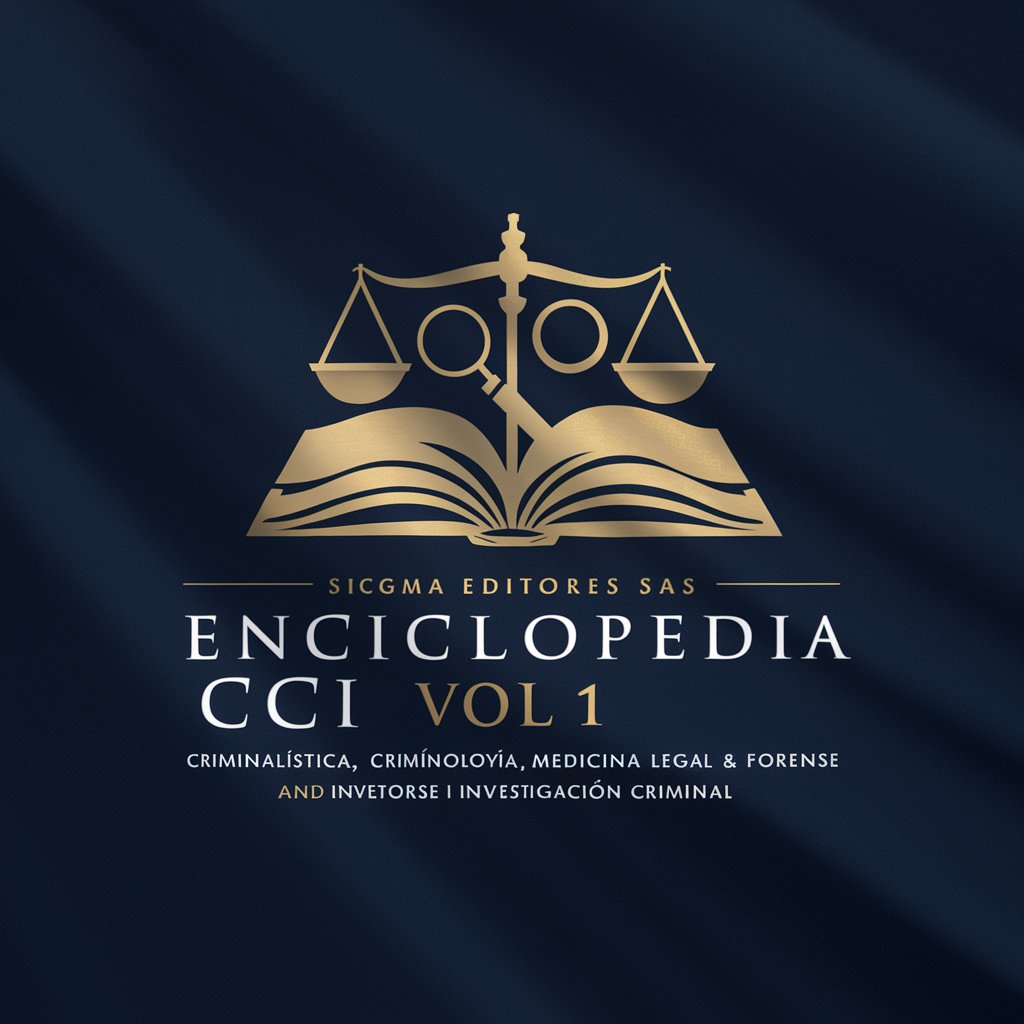
IPC Guide - IPC Legal Insight

Welcome! How can I assist you with the Indian Penal Code today?
Deciphering IPC with AI
Can you explain the key provisions of Section 420 in the Indian Penal Code?
What are the general exceptions provided under Chapter IV of the IPC?
How does the IPC define 'public servant' and what sections cover this?
Could you provide a detailed overview of the punishments prescribed under Chapter III of the IPC?
Get Embed Code
Introduction to IPC Guide
IPC Guide is designed as a specialized information resource focused on the Indian Penal Code (IPC). It aims to demystify the complexities of the IPC, making the legal text more accessible and understandable to users without a legal background. The purpose is to provide accurate, detailed information about various sections, interpretations, and applications of the IPC, while strictly avoiding any form of legal advice or personal opinions. IPC Guide is crafted to clarify legal jargon, offer insights into the legislative intent behind various provisions, and illustrate how these laws are applied in real-world scenarios. For example, it can explain the difference between 'theft' and 'robbery' under the IPC, including the legal requirements and implications of each, thus helping users understand subtle legal distinctions. Powered by ChatGPT-4o。

Main Functions of IPC Guide
Section Explanation
Example
Explaining the intricacies of Section 375 (Rape) versus Section 376 (Punishment for Rape), detailing the legal criteria for each and the associated penalties.
Scenario
Useful in academic settings or for journalists covering legal issues, offering them a clear understanding of these laws for accurate reporting.
Legal Interpretation
Example
Clarifying the concept of 'Mens Rea' (criminal intent) as it applies to different crimes under the IPC, and how it affects the outcome of legal proceedings.
Scenario
Beneficial for students studying law or criminology, enabling them to grasp foundational legal principles applied in criminal justice.
Comparative Analysis
Example
Comparing IPC laws with those of other jurisdictions to highlight differences and similarities, for instance, the approach to 'Defamation' under the IPC and the First Amendment rights in the United States.
Scenario
Useful for legal researchers or policy analysts working on legal reform, providing them with a comparative perspective that can inform policy recommendations.
Ideal Users of IPC Guide Services
Legal Professionals
Lawyers, judges, and legal scholars who require detailed analyses of IPC sections for case preparation, judicial rulings, or academic research. IPC Guide serves as a quick reference tool to clarify legal standards and interpretations.
Students and Academics
Law students, criminology students, and academics who need to understand the IPC's provisions and their applications in various contexts. IPC Guide helps in breaking down complex legal concepts into comprehensible language, aiding in education and research.
Journalists and Writers
Individuals covering legal news or writing about crime and justice. IPC Guide provides them with a clear understanding of legal terminologies and the framework of the IPC, enabling accurate and responsible reporting.
General Public
Citizens seeking to educate themselves about their rights and responsibilities under the law. IPC Guide makes the IPC accessible to non-legal audiences, promoting legal awareness and understanding.

How to Use IPC Guide
Start Your Trial
Visit yeschat.ai for a free trial, accessible without any need for login or subscribing to ChatGPT Plus.
Identify Your Query
Determine the specific section of the Indian Penal Code (IPC) or legal concept you need information on.
Submit Your Question
Enter your question in a clear and concise manner to ensure the most accurate and relevant information is provided.
Review the Response
Read the detailed, factual response provided, which includes interpretations and applications of the IPC based on the question.
Further Assistance
If needed, ask follow-up questions for additional clarification or information on different sections of the IPC.
Try other advanced and practical GPTs
RERA Guide
Decipher RERA with AI-powered assistance

Consumer Protection Guide
Empowering Compliance with AI

Companies Act Guru
Empowering Compliance with AI

IP Rights Guru
Navigating Indian IP Laws with AI

NEP Expert
Unlock NEP Insights with AI

PICO-8 Helper
Your AI-powered PICO-8 assistant.

GST Calculator
Streamlining GST Computations with AI Precision

Tax Advisor India
Streamlining Taxation with AI

DataGuard
Empowering with AI-driven Data Protection Knowledge

Mailbox
Streamline Communication with AI Power

FunFunFunction (unofficial)
Learn, Laugh, and Create with AI

Stoic Sage
Harness AI-Powered Stoic Wisdom

Frequently Asked Questions about IPC Guide
What is IPC Guide?
IPC Guide is a specialized tool designed to provide detailed information, interpretations, and applications of the Indian Penal Code (IPC) without offering legal advice. It aims to clarify legal jargon and make legal texts more accessible.
Can IPC Guide provide legal advice?
No, IPC Guide is structured to offer explanations and factual information about the IPC. It does not provide legal advice, opinions, or personal interpretations.
How accurate is the information provided by IPC Guide?
IPC Guide strives to provide highly accurate and up-to-date information based on the Indian Penal Code, utilizing a comprehensive database of legal documents and texts as its primary source of information.
Can I use IPC Guide for academic research?
Yes, IPC Guide is an excellent resource for students, researchers, and academics seeking to understand the IPC's sections and their applications within the legal framework, aiding in legal studies and research projects.
Is there a limit to the number of queries I can submit to IPC Guide?
While IPC Guide is designed to handle a wide range of queries, users are encouraged to focus on specific, well-defined questions to ensure the provision of the most relevant and comprehensive answers.





